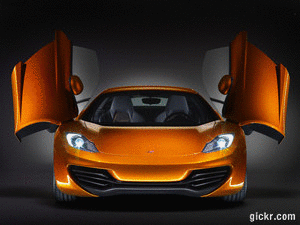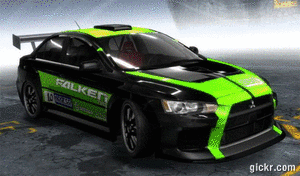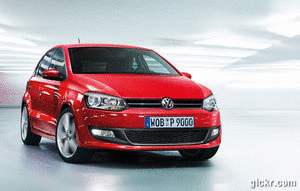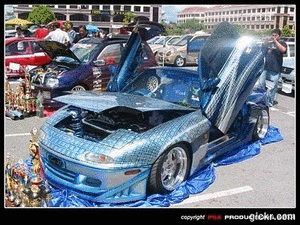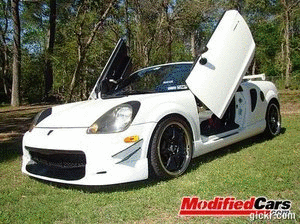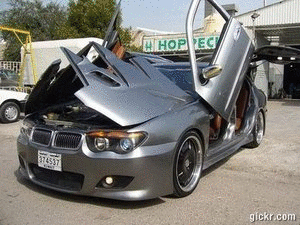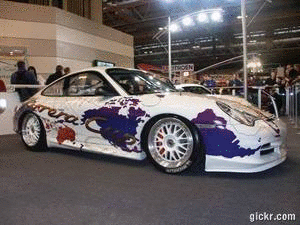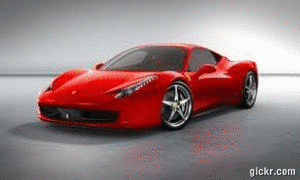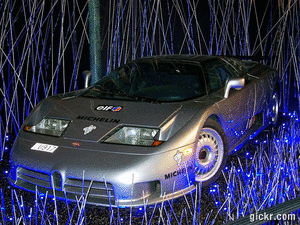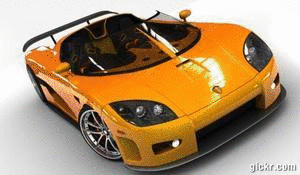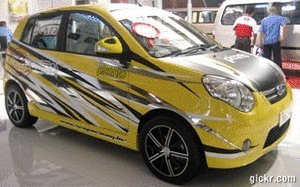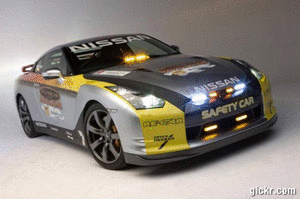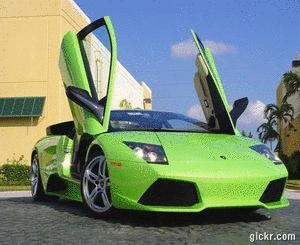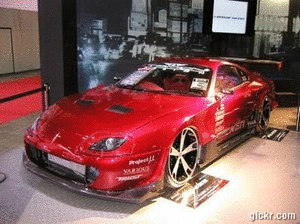|
|---|
Showing posts with label MiEV. Show all posts
Showing posts with label MiEV. Show all posts
Monday, July 11, 2011
NRMA’s roadside assistance goes electric
NRMA Motoring & Services unveiled its first electric roadside assistance vehicle and mobile electric car charging station today in a bid to support the ever-growing electric vehicle market.
The NRMA's first electric roadside assistance vehicle, the i-MiEV, will be trialed in the Sydney CBD from early September after completing a six week tour of the state, showcasing the benefits of electric vehicles (EVs) to some of the NRMA's 2.3 million Members.
In an Australian first, the NRMA will also launch the first mobile Electric Vehicle charger to rescue Members if their EV battery goes flat.
The mobile charging station will recharge an EV battery to a point where Members can drive their car to a dedicated charging station for full charge.
NRMA Motoring & Services President Wendy Machin said she was delighted to announce the NRMA's first electric roadside assistance vehicle, marking the mutual's transition to cleaner and greener fuels.
"The NRMA's i-MiEV is a further step in greening our Patrol fleet, which would assist in reducing greenhouse gas emissions," Ms Machin said.
"It will help us understand our Members' EV needs as part of our regular roadside assistance network in the city and will service both electric and regular vehicles.
"Our Patrol workers have been trained on servicing electric vehicles to ensure the NRMA is keeping pace with emerging alternative fuels technology," said Ms Machin.
The i-MiEV will be on trial for approximately six months and will provide the organisation with much needed data about the costs of running and maintaining an electric vehicle as well as the practicality of this new technology.
The NRMA has installed a charging station for the i-MieV at its Wynyard office and North Strathfield headquarters in partnership with Club Assist, the provider of car batteries, car electrics and auto glass services for the NRMA.
Club Assist's COO Mr Steve Grossrieder said Club Assist is thrilled to have partnered with the NRMA as their preferred supplier in bringing EV mobile charging technology to NRMA Members.
"Club Assist continues to lead the way internationally in the Electric Vehicle arena. We are a dominant leader offering expertise and professional advice in EV Charging Systems to motoring clubs globally," said Mr Grossrieder.
"We look forward to working with the NRMA in the future to bring this service to all NRMA Members."
"We see the electric vehicle revolution as the best way to reduce our dependence on imported oil and the associated price volatility," said Ms Machin.
"If EVs are powered with renewable sources of electricity, these vehicles will ultimately reduce the transport sector's contribution towards Australia's greenhouse gas emissions."
The hybrid Toyota Prius has sold more than 8,327 vehicles since 2008.
The first i-MiEVs for sale will arrive in August this year at around $50,000. 110 Mitsubishi i-MiEVs have been leased in Australia since 2010.
Labels:
Battery Electric Car,
MiEV
Thursday, July 7, 2011
Mitsubishi Debut Solar-Powered Vehicle Charging Station
Mitsubishi Electric & Electronics USA, Inc. (Mitsubishi Electric) and Mitsubishi Motors North America, Inc. (MMNA) today debuted a solar-powered charging station for electric vehicles at the MMNA headquarters in Cypress, California. This charging facility, the first of its kind in Cypress, symbolizes MMNA's commitment to electric vehicle readiness, and will help kick off the preparations as certified Mitsubishi dealers become EV-ready in anticipation of the scheduled launch date of Mitsubishi i for each state. The charging station is powered by 96, 175W photovoltaic modules from Mitsubishi Electric.
This charging station will help support CHAdeMO compatible electric vehicles such as the Mitsubishi i, which will arrive in showrooms in November of this year. Mitsubishi i vehicles are now being reserved by prospective owners through a pre-order process available at i.mitsubishicars.com.
Able to charge up to four vehicles at once, the station features three types of chargers with different voltages: standard level 1 voltage (110v) will deliver a 100 percent charge in 22 hours on the new Mitsubishi i; level 2 (220v) which can charge the vehicle in six hours; and level 3 CHAdeMO Quick Charger, which can charge to 80 percent battery capacity in 25 minutes.
The DC Quick Charger used for the Cypress charging station is manufactured by the Eaton Corporation, and is the first-of-its-kind CHAdeMO Quick Charger certified for U.S. sale and public utility. The actual installation of the charging equipment and the supporting electrical infrastructure was handled by Rogers Electric. The twin-arch structure for the charging station was designed by California Green Designs.
The charging station is the first such collaboration between the two similarly named companies, whose headquarters are just a few blocks apart in northern Orange County. Situated near the junction of the 405 and 605 freeways, the hope is that the Cypress charging station, with its Quick Charge capability, can serve as a gateway charging pad for Mitsubishi i users commuting between Los Angeles and Orange counties.
"This project will build awareness of solar power's versatility and efficiency," said Katsuya Takamiya, president and chief executive officer, Mitsubishi Electric & Electronics USA. "As electric vehicles' popularity grows, we expect to see more charging stations at large employers, automobile dealerships, shopping centers and schools, where cars can charge while people work, shop or study."
Mitsubishi Motors North America President Yoichi Yokozawa said "We hope that our dealers, learning institutions, and municipalities will look to this technology with a keen eye towards the future, and bear in mind that the gradual acceptance of the pure-EV transportation will be aided by increasing the number of facilities like this one."
Mitsubishi Electric's solar panels are made with 100 percent lead-free solder, and have one of the higher sunlight-to-energy conversion ratios in the industry, adding to the project's efficiency and sustainability.
Labels:
Battery Electric Car,
MiEV,
Renewable energy
Mitsubishi's iMiEV gets better EPA rating than Volt, Leaf
Mitsubishi is today boasting of a double whammy when it comes to its new electric car. It not only will be cheaper to buy, but it will cost less in electricity to run than its major competitors.
The i, Mitsubishi Motor's all-electric vehicle, has garnered an EPA-rated 126 MPGe (that's gas-mileage equivalency, meaning how its electricity use would compare if it ran on gasoline) for city driving and 99 MPGe for highway driving. These numbers compare to Chevrolet Volt's 95 city/90 highway when running on electricity alone without its gas engine, or the all-electric Nissan Leaf's 106 city/92 highway.
"It means our electric drive train is more efficient. We will cost you less to operate," says Mitsubishi spokesman Moe Durand. "It will make the best use of its electricity."
But bear in mind, the i is a subcompact. The other two are considered larger, or compacts. As such, Durand says it may not be entirely fair to compare i to Leaf and Volt.
The new i, won't have the best range on a single charge. Mitsubishi says it will have a range of 62 miles before the battery needs to be recharged. The Leaf, by contrast, is rated at 73. The Volt only goes 35 miles on electricity alone, but the backup gas engine means there's no danger of being stranded without juice.
Mitsubishi will have a price advantage:
It will start at $27,990 for the base model before shipping charges are added. That's about $5,000 less than a Leaf and $13,000 less than a Volt.
"We feel that with the combination of capability, affordability, and high level of efficiency offered by the 2012 Mitsubishi i will prove very appealing to consumers considering EV transportation," says Yoichi Yokozawa, CEO of Mitsubishi Motors North America.
The i is now available for pre-order, arriving early in 2012.
Labels:
Battery Electric Car,
MiEV
Mitsubishi Motors unveils cheaper i-MiEV electric car
Mitsubishi Motors Corp launched two new versions of the i-MiEV electric car on Wednesday, slashing the price on one and extending the range on the other to appeal to more consumers in the nascent zero-emission field.
Mitsubishi Motors became the first major automaker to mass-produce pure electric cars with the egg-shaped i-MiEV and leads the segment so far with 10,000 vehicles sold globally since mid-2009. It has exported another 4,000 electric cars for sale under PSA Peugeot Citroen's brands.
Japanese rival Nissan Motor Co, which wants to dominate the electric vehicle (EV) market with its French partner Renault SA, has sold 8,500 Leaf electric cars globally since its launch in December 2010.
In the i-MiEV's first remodeling, Mitsubishi Motors will offer an entry-level "M" version, with a sticker price of 2.60 million yen ($32,000), down from 3.98 million yen, and a shorter range of 120 km (75 miles), compared with 160 km (100 miles) for the previous model.
After Japanese government subsidies, the M will cost the buyer 1.88 million yen, Mitsubishi Motors said.
"Costs have really come down dramatically," President Osamu Masuko told a news conference, adding that batteries -- the main reason for the relatively high price of EVs -- had more than halved in price in the last two years.
"We will try to keep the price down even when the subsidies go away," he said.
The higher-grade "G" version carries a suggested retail price of 3.80 million yen and can go 180 km (110 miles) on a full charge measured under a stricter Japanese fuel economy reading.
Mitsubishi Motors plans to sell 6,000 i-MiEVs in Japan in the business year to next March 31 and 25,000 EVs globally, including those produced for Peugeot-Citroen.
POWER CRISIS FANS DEBATE
The earthquake and tsunami that devastated northeast Japan on March 11 have ignited debate over whether the spread of electric cars would stall in a country facing a nuclear crisis, tight electricity supply and the possibility of higher electricity prices.
Masuko said he did not perceive any headwind for EVs, but rather a heightened need to develop renewable energy and multiple power sources. Electric cars, he said, could also be a useful source of power in an emergency by discharging electricity from their batteries.
"At first we wondered whether EVs could be useful in the disaster zones, and it turned out that they were because gasoline was scarce at the beginning," Masuko said. The Mitsubishi group has loaned 89 i-MiEVs free to the region's governments and others helping with relief efforts.
"Once enough gasoline became available we asked whether we could have them back, but we were told they were still useful so not one has been returned yet," he said.
Mitsubishi Motors said it hopes to develop and market within this business year a portable converter with enough output capacity to allow its electric cars to power household electronics such as rice cookers and washing machines.
A converter for laptop computers and other products that use less electricity is already available as an option.
On a larger scale, Japanese automakers including Mitsubishi Motors, Nissan and Toyota Motor Corp are looking to add a function that would enable EVs to discharge electricity directly to homes. The i-MiEV would be able to power an average household for at least a day.
With the proper control functions, that would allow households equipped with solar panels to charge their EVs during the day with clean energy, then use the power stored in the car's batteries to supply the household at peak hours.
Mitsubishi Motors will buy the smaller-capacity lithium-ion batteries for the i-MiEV's "M" grade from Toshiba Corp and continue using batteries made by its joint venture with Mitsubishi Corp and GS Yuasa Corp for the "G."
Labels:
Battery Electric Car,
MiEV
Tuesday, June 21, 2011
Mitsubishi iMiEV Electric Car Test Drive EEVblog #179 [video]
Malcolm Faed drives an Mitsubishi MiEV Electric Car into the EEVblog to give Dave Jones a look and a test drive. And also talks about his electric ute conversion.
Source: EEVblog #179
Labels:
Battery Electric Car,
MiEV,
TV
Thursday, June 16, 2011
Toshiba SCiB to be used in i-MiEV, recharge to 80% in just 15 mins

Toshiba Corporation today announced that its SCiB™ (Super Charge ion Battery) battery has been selected by Mitsubishi Motors Corporation to power two new models of electric vehicles (EV), the i-MiEV and MINICAB-MiEV. The SCiB™ is Toshiba's breakthrough rechargeable lithium-ion battery that combines high levels of safety with a long life, rapid charging and excellent charging and output at very low temperatures, characteristics that make it highly suited to application in EV.
Toshiba developed the SCiB™ to meet a series of demanding performance and safety criteria. By successfully employing lithium titanate oxide in the anode, Toshiba has assured that the SCiB™ offers high level operating safety, a long life and rapid charging. The use of lithium titanate oxide also significantly reduces the possibility of a puncture in the separator between the anode and cathode, so minimizing the risk of them coming contact into and short circuiting, and maintains battery performance levels even in severe operating conditions, including very low temperatures.
The SCiB™ pushes the life of the lithium-ion battery to a new level by supporting 2.5 times more charge/discharge cycles than a typical lithium-ion battery. Recharging is also notably better. Charged with the highest current available with CHAdeMO*1, widely seen as the emerging standard for fast charging EV, an SCiB™ reaches about 80 percent of full capacity in some 15 minutes, about 50% in 10 minutes and about 25% in 5 minutes*2 – half the times of a typical lithium-ion battery charged under the same conditions. The SCiB™ also generates little heat while recharging, eliminating the need for power to cool the battery module.
Most important of all for real-world application, the SCiB™ delivers high level performance. The SCiB™ offers a higher effective capacity than a typical lithium-ion battery, in that more of the stored charge can be used safely before recharging the battery. This, combined with highly efficient regenerative charging during braking or coasting downhill, allows the SCiB™ to deliver 1.7 times the driving distance per level of charge of a typical lithium-ion battery. This will allow for installation of smaller battery modules in vehicles and contribute to lower EV prices. The SCiB™ also offers high level performance in a wide range of temperatures, and continues to support rapid charging and excellent power output at temperatures as low as -30ºC.
The SCiB™ for Mitsubishi's new EV will be manufactured at Toshiba's Kashiwazaki Operations in Niigata prefecture, northwest Japan, a new facility dedicated to production of SCiB™ that came on line in February this year. Toshiba will seek to establish a plant operating structure able to respond quickly to market growth as the basis for expanding the SCiB™ business for EV, including hybrid and plug-in hybrid EVs.
As the automotive industry responds to concerns about global warming by developing a new generation of environmentally friendly EV, Toshiba is promoting advances in essential automotive technologies, from dedicated on-board control systems to batteries and Intelligent Traffic Systems. In automotive-related power electronics technologies, Toshiba is targeting net sales of 800 billion yen by fiscal year 2015 from its concentration on motors, inverters and SCiB™.
Toshiba will continue to promote sales of the SCiB™ in a global market for lithium-ion batteries that is expected to record sales of some 1 trillion*3 yen in fiscal year 2015.
*1 The CHAdeMo Association is promoting a global standard for fast charging of EV.
*2 For a battery with a capacity 10kWh.
Labels:
Battery News,
MiEV
Subscribe to:
Posts (Atom)
